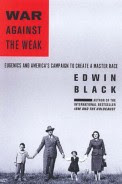Do I love my daughter? With all my heart. Will it be a relief when she dies? Without question: Life and Death Issues with a Disabled Child
The article is written by a woman named Tussie Myerson, the mother of eighteen-year-old Emmy, a young woman with severe seizure disorder and profound cognitive disabilities. Myerson complains bitterly—and righteously—about the lack of services for the family who provide all of Emmy’s care. She notes:
When she was 10 months old (1992) we were told by the wise and the wonderful at Great Ormond Street that she would die very soon. If she didn’t die very soon she would die a little bit later. If she didn’t die then she would probably be a vegetable for the rest of her “short” life. There was no counselling or support…For the next 18 months I had to deal with the hugely complex array of appointments, whilst having this dreadful thought in the back of my head that my daughter was going to die. She didn’t. I stopped believing the doctors. I started believing in my daughter.
These abandoning attitudes have led the understandably embittered Myerson to give voice to what I believe is a cancerous and growing meme in society that we—in the societal sense—and families are better off without the presence of the profoundly disabled among us:
Society now appears to be about extending life. Ticking medical boxes and covering arses that enable life to be prolonged without necessarily asking the terribly important question. Who are we doing this for? Because it is not for me, or my family. We have been through quite enough. And I cannot imagine it is for my daughter. What she has had to go through does not bear thinking about.
And why is it still taboo to talk about this issue? Why, with an ageing population, and more babies surviving premature birth and birth trauma, is it still considered politically incorrect to tackle the really important and, lets face it, unavoidable issue, of who are we maintaining life for?…Why is there nowhere in this country that provides long-term palliative care for young people whose lives are not going to be improved by medical intervention? They are just going to be extended. Extension does not mean made better, it just means longer.
And with such statements and repetitive stories and editorials, the “quality of life” ethic digs ever more deeply into society’s consciousness. What is really being said—in the way we abandon many families such as the Myersons to their own devices and look upon people like Emmy as if they are aliens—is why should we—have to put up with these people? Not only are they unproductive—but more unforgivably—they remind us of the vicisitudes and mortality of our own lives.
Don’t get me wrong: I am not condemning Myerson. She has clearly loved her daughter very well in the face of official and societal indifference. But I also don’t think it is a coincidence that the Independent decided to feature her story on the front page—not in the context of demanding improved care and concern for people like Emmy—but rather, at a time when there is an increasing desire to see them, one way or the other, made dead.
Consider: Myerson’s piece was published in the midst of the “Baby RB case,” headline-making lawsuit in which a mother and father are battling over whether to continue life support for their profoundly physically disabled, but cogntively normal baby—with the hospital in favor of death, a lawsuit that I believe represents the next step in the gestation of a death culture that already is pushing for assisted suicide for the elderly and disabled, before it is widely legal for the dying—and which routinely dehydrates people to death when they become cognitively devestated, even as advocates say that we should instead kill them for their organs. Meanwhile in the Netherlands, infants are being euthanized in their cribs based on quality of life judgmentalism and the doctors who kill babies are feted in prestigious publications like the New England Journal of Medicine.
A deadly form of the eugenics virus has returned to afflict us. It pretends to be about choice and compassion, but it is really about disdaining and abandoning the weak. And in that process, we are losing our ubuntu, that is, the crucial understanding that our own own humanity (or soul) is inextricably linked with the humanity of all others, particularly the most weak and vulnerable among us.

